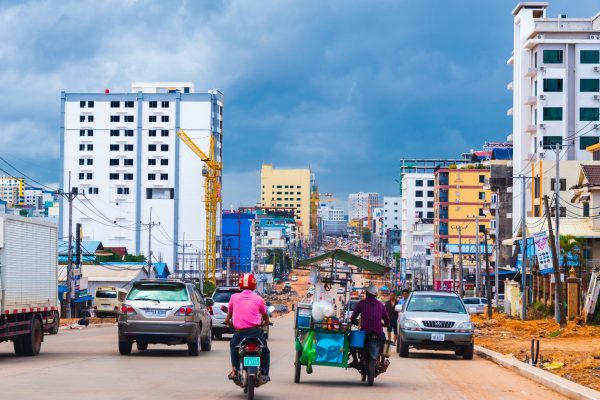
Support groups responsible for victims of human trafficking are urging the Association of Southeast Asian Nations (ASEAN) to intervene in the affairs of its member states in a bid to end the scourge which has flourished throughout this year.
Cambodia, Myanmar, and Laos were cited in a memorandum presented to the Malaysian foreign ministry by Hishamuddin Hashim, secretary-general of the Malaysian International Humanitarian Organization, who said “extraordinary” action was required.
“The Foreign Ministry and the Malaysian government need to use the highest platform available,” he told reporters, adding that pressure needed to be applied by using the ASEAN platform and engaging the prime ministers of each ASEAN country.
“If we continue to use the normal channels the case will never be solved,” he said.
Other NGOs backing ASEAN involvement are the Persatuan Pengguna Semboyan Malaysia, Pertubuhan Penggerak Ekonomi Islam Malaysia, and Pertubuhan Ekonomi Negeri Sembilan.
They want an ASEAN desk established in Malaysia, staffed by police from each of the 10 ASEAN states to collect and share information, crack down on syndicates, stop people from traveling abroad for fake jobs, and apply pressure on governments to act.
Such an unprecedented intervention might rub against ASEAN’s policies of non-interference, but human trafficking has been redefined, as noted by the United Nations Special Rapporteur for Cambodia, Viti Muntarbhorn, and it is a peculiar ASEAN issue.
Muntarbhorn recently wrapped an 11-day mission here, and described the life of trafficked victims as a “living hell” that often resulted in torture and even death – adding that Cambodia had been transformed from a trafficking source to a trafficking destination.
“Countries are now waking up to the phenomenon and Cambodia needs to activate counter-measures more strongly, while welcoming international cooperation and support,” he said.
Chinese criminal syndicates have been blamed for trafficking tens of thousands of Asians into all three countries where they have been forced to work an array of fraudulent telecom rackets.
These include romance scams, entrapment through video calls and secret recordings of lewd acts, credit card scams, phishing and copycat government websites, and fraudulent financial offers.
Most have been lured by false promises of high-paid jobs into Sihanoukville, the port town on Cambodia’s south coast with a notorious reputation for lawlessness, which has fallen on hard times due to the pandemic after being rebuilt into a gambling den by Chinese investors.
Prosecutors in Taiwan have charged the heads of two Chinese criminal gangs, among others, for luring 88 Taiwanese into Cambodia where some allegedly suffered electrical shocks or were held for ransom if they refused to obey orders or did not meet work expectations.
Measuring the scale of the trafficking has been difficult.
Reports of rescues are the stuff of daily headlines in Cambodia and according to the China Daily, about 20,000 Chinese people who intended to sneak abroad to carry out online fraud were stopped by police from May to October last year.
In March, a group of 35 NGOs told the Cambodian government to urgently address “a crisis of forced labor, slavery and torture” after warnings were issued by five Asian embassies. Since then victims have been lured here from Mongolia to Pakistan and Indonesia to Nepal.
Indonesians have arrived in Sihanoukville by chartered flights from Medan, Chinese have traveled by boat, and thousands of Vietnamese have been smuggled across land borders. More than 600 of them have been repatriated – another 12 last week, alongside another 24 Malaysians.
Then, in July, the United States dropped Cambodia to Tier 3, the lowest rank on its human trafficking index, for its failure to deal with the issue.
In Cambodia, which has promoted itself heavily as a post-COVID-19 tourist destination, a sense of urgency has emerged.
“The masterminds involved must be punished according to the law in order to strengthen security, order, social security and national honor,” Interior Minister Sar Kheng said on Monday. “We must act quickly. Our Kingdom’s image and reputation are at stake.”
Provincial authorities in Sihanoukville have also ordered the owners and managers of all buildings in the city to record details regarding foreigners who stay and work on their premises and to register that information with the police before September 24.
Whether or not owners with links to international syndicates comply is an issue. But a fully staffed ASEAN desk of capable law enforcement officers would help and provide a response to a blight that has proved impossible to eradicate.
ASEAN Urged to Intervene Over Human Trafficking
Source: Frappler

0 Comments